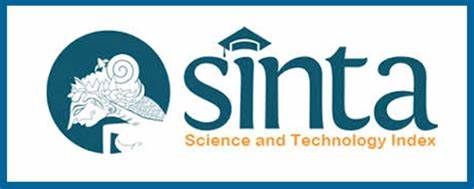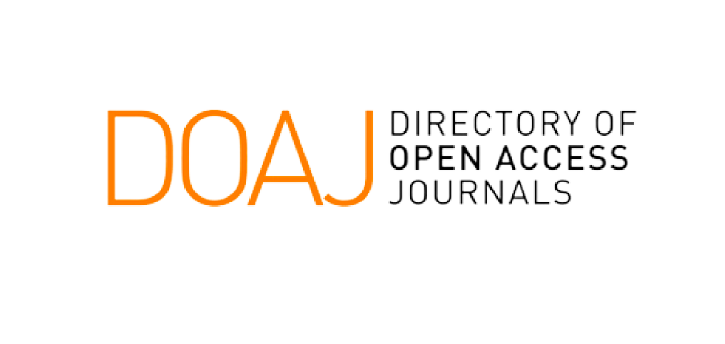ARKEOLOGI EPISTEMIK NARASI PERTENTANGAN AGAMA DAN PANCASILA
Abstract
This article elaborates on the narrative that contrasts religion and Pancasila which has recently become stronger. This is marked by rejection by some groups who consider Pancasila an idol or taghut that must be fought. On the other hand, some express problematic views, such as in the KPK national test by asking which position is higher, between the Koran and Pancasila. This research is qualitative-descriptive with a hermeneutic approach, namely the researcher describes the narrative of the conflict and interprets it from a reproductive interpretive point of view. The theoretical basis used to obtain a complete picture and analysis of the conflict narrative is Pancasila philosophy, especially Pancasila epistemology. This theory is used to describe the source of the conflicting narrative, the structure of the conflicting narrative, and the validity of the conflicting narrative. The results of this research show that epistemic reproduction in narratives that position religion as higher than Pancasila, or conversely that Pancasila is higher than religion occurs in different forms and networks of power. In the first narrative, epistemic reproduction is intertwined with the ideas of Islamism and religious populism. Meanwhile, in the second narrative, epistemic reproduction is intertwined with the idea of radical nationality because the Republic of Indonesia is dead. The reproduction of the conflict narrative continues to be reproduced, even though in different contexts or times but is the same in terms of the substance of the conflict.
Keywords
Full Text:
PDFReferences
Assidiqie, Jimly, (Pengantar), 2008, dalam Pancasila versus Islam, Kusma,ed., Baur Publishing, Jakarta.
Ali Ismail Saleh Dan Fifiana Wisnaeni, 2019, “Hubungan Agama Dan Negara Menurut Pancasila Dan Undang-Undang Dasar Negara Republik Indonesia Tahun 1945” Jurnal Pengembangan Hukum Indonesia, Vol. 1 No. 2
Budiono, 2014, “Hubungan Agama dan Negara dalam Negara Pancasila”, Fiat Justicia Jurnal Ilmu Hukum, Volume 8 No 3 Juli September.
Kaelan. 2005. Metode Penelitian Kualitatif Bidang Filsafat. Paradigma, Yogyakarta.
Latief, Yudi, 2011, Negara Paripurna: Historisitas, Rasionalitas, dan Aktualitas Pancasila, Jakarta: Gramedia
Noer, Deliar, 1994, Gerakan Modernisme Islam di Indonesia, LP3ES, Jakarta.
___________1987, Partai Islam di Pentas Nasional: Kisah dan analisis perkembangan politik Indonesia 1945-1965, Grafiti Pers, Jakarta.
Natsir, Mohammad., 2004, Islam sebagai Dasar Negara, Sega Arsy, Bandung.
___________Islam sebagai Dasar Negara: Pidato Natsir dalam Sidang Pleno Konstituante pada tanggal 12 Novenber 1957, Pimpinan fraksi Masyumi.
Safa’at, M. Ali, 2019, Dinamika Negara dan Islam, Konpress, Jakarta.
Poespoprodjo, 1987. Interpretasi, Remaja Karya, Bandung.
Van Peursen, C. A 1985. Susunan Ilmu: Sebuah Pengantar Filsafat Ilmu. (terj. J. Drost). Gramedia. Jakarta
Yusuf Eko Nahuddin dan Angga Prastyo, 2020, “Hubungan Agama dan Pancasila dalam Persoektif Konstitusi”, Jurnal Cakrawala Hukum, Vol. 11 No. 3
Zahra, Abu (ed.). 1999, Politik Demi Tuhan: Nasionalisme Religius di Indonesia, Bandung: Pustaka Hidayah
Website:
https://www.antaranews.com/berita/2221106/budayawan-jangan-suruh-masyarakat-pilih-pancasila-atau-agama
https://www.republika.co.id/berita/q5l9ye377/penjelasan-yudian-wahyudi-soal-agama-musuh-pancasila
DOI: https://doi.org/10.21776/ub.waskita.2023.007.02.2
Refbacks
- There are currently no refbacks.
Copyright (c) 2023 Mohamad Anas, Emy Setyaningsih, Albar Adetary Hasibuan

This work is licensed under a Creative Commons Attribution 4.0 International License.









